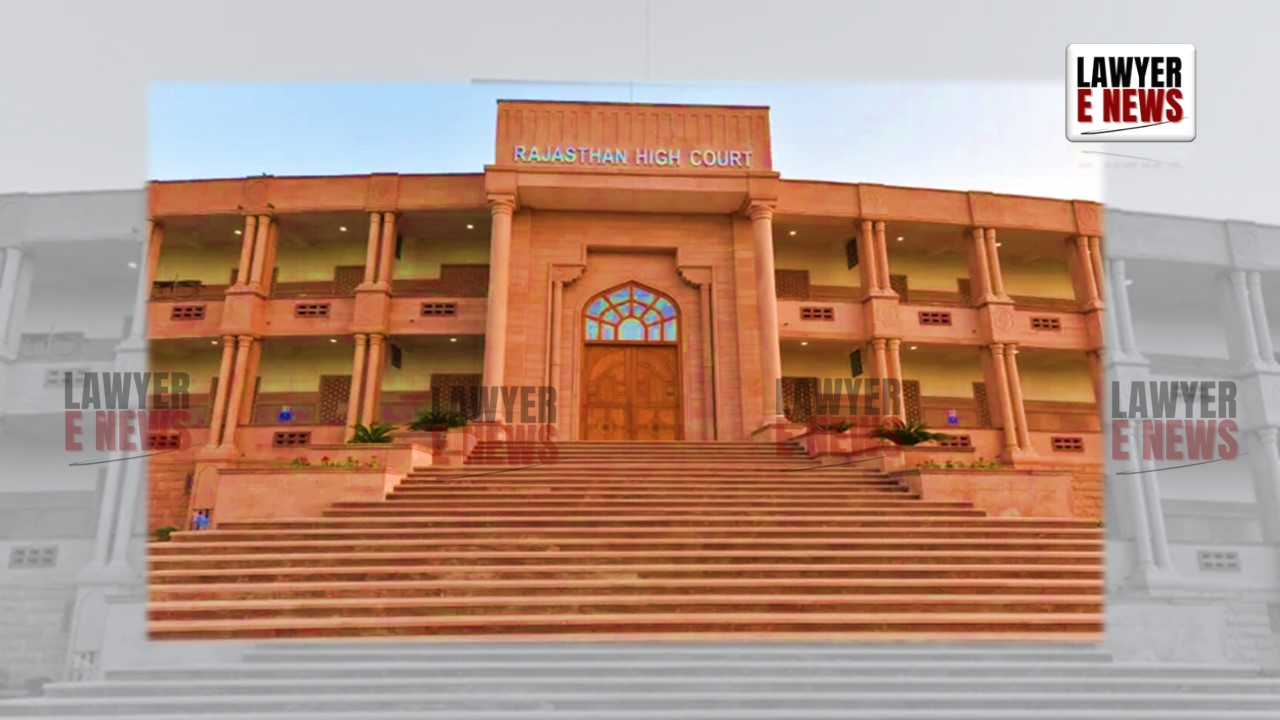-
by Admin
15 February 2026 5:01 PM



The Rajasthan High Court's Jaipur Bench has dismissed a civil miscellaneous appeal seeking a temporary injunction against an alleged fraudulent property mutation. The judgment, delivered by Hon'ble Mr. Justice Narendra Singh Dhaddha, upheld the decision of the Additional District Judge No.2, Sikar, which had denied the appellant's request for temporary relief. The case involves complex issues of property rights, inheritance, and the legal validity of a 'hiba' (gift) under Muslim law.
The appellant, Aisha Bano, claimed rights over a property initially owned by her grandfather, Haji Abdul. After his death, the property allegedly devolved upon Akbar Hussain, Aisha's relative, through joint business income. Aisha contended that after the deaths of Akbar Hussain and subsequent heirs, the property rightfully belonged to her. However, the respondent, Mohammad Shafi, claimed ownership based on an oral 'hiba' from Akbar Hussain, which was reflected in a 1993 mutation order.
Aisha Bano challenged this mutation decades later, alleging it was fraudulently obtained and did not reflect the true legal heirs. She sought a temporary injunction to prevent the creation of third-party interests in the disputed property until the resolution of her suit for declaration and partition.
Justice Dhaddha emphasized the difficulty of disputing a 'hiba' in Muslim law, which does not necessitate documentary evidence. The affidavits submitted by the respondent supported the claim of an oral gift, and the appellant failed to provide sufficient counter-evidence.
The court noted the significant delay of 28 years in challenging the mutation, which weakened the appellant's case. The mutation was recorded when Aisha's mother was alive, yet no objections were raised at that time.
The court reiterated that issues related to the validity of mutation fall under the jurisdiction of the revenue court, not the civil court. Additionally, it was highlighted that the appellant did not possess the disputed property, further diminishing the merit of her claim for a temporary injunction.
The judgment underscored the necessity of establishing a prima facie case, balance of convenience, and irreparable loss to warrant a temporary injunction. The court found that the appellant failed to meet these criteria. Without possession and with a delayed challenge to the mutation, her case lacked the immediacy and strength required for temporary relief.
Justice Dhaddha observed, "The trial court rightly concluded that without a declared khatedari right, the applicant cannot seek relief from the civil court." He further noted, "The affidavits supporting the 'hiba' were not effectively rebutted by the applicant, leaving no room for a prima facie case."
The High Court's dismissal of the appeal reaffirms the stringent requirements for granting temporary injunctions in property disputes. The judgment clarifies the jurisdictional boundaries between civil and revenue courts in matters of property mutation and underscores the importance of timely legal challenges. This decision is likely to influence future cases involving delayed disputes over property rights and the evidentiary standards for 'hiba' under Muslim law.
Date of Decision: May 13, 2024
